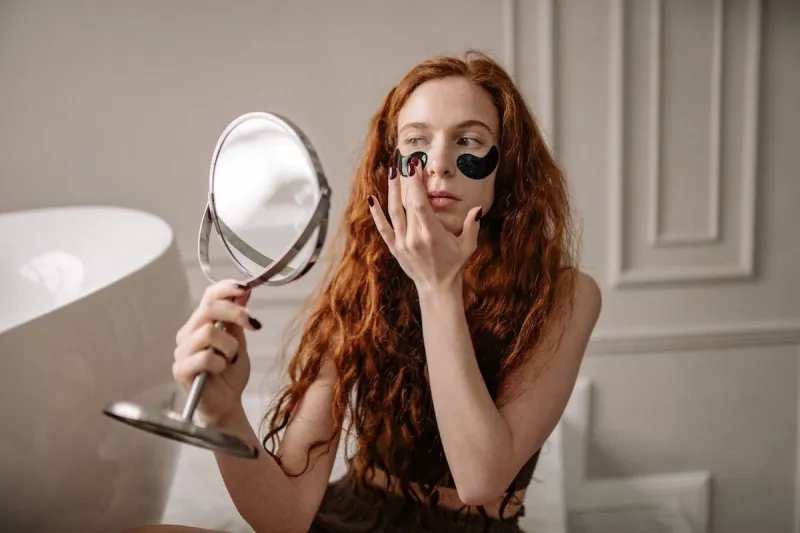
There may be no shortcuts to firm, smooth, and bright skin, but if retinol and vitamin C are in your beauty routine — or at least on your radar — then you’re on the right track. After all, both of them target dullness, acne, pigmentation, and wrinkles. But which one is right for you? Better yet, can you use them together?
In this guide, we’ll discuss how and when to use retinol and vitamin C individually as well as how to use them together to achieve the healthiest glow.
What is retinol, and what are its benefits?
Retinol is a vitamin A derivative known for its wrinkle-fighting properties. Retinol’s anti-aging properties are well-documented and deemed second only to sunscreen. Beyond that, retinol promotes collagen production, unclogs pores, and reduces pigmentation.
Retinols are also very helpful in treating acne, especially blackheads and whiteheads. Last but not least, retinol speeds up cell turnover, which prompts the skin to shed damaged cells and produce healthy ones in their place. Overall, retinol’s claim to fame is its collagen-stimulating and anti-aging powers.
What Is Vitamin C And What Are Its Benefits?
Vitamin C, also known as ascorbic acid, might be most familiar as a nutrient that helps protect the body. Nonetheless, it is also a rising star in the skincare industry. That’s because vitamin C is an antioxidant that neutralizes free radicals on the skin. Free radicals such as pollution and UV rays are responsible for breaking down collagen. Broken down collagen leads to the development of fine lines and wrinkles.
When applied to the skin, vitamin C aids the body in restoring damaged skin cells. Vitamin C can also even out discoloration, refine the skin’s tone and texture, and help prevent or improve the appearance of wrinkles. On the whole, vitamin C ‘s superpower is protecting and repairing the skin.
Retinol Vs. Vitamin C— Which Should You Use?
Before you choose between vitamin C or retinol, let’s review their similarities and differences.
Both ingredients can help with wrinkles, fine lines, and acne. However, only vitamin C has been proven effective against pollution and UV rays. It is also more effective for minimizing discoloration and brightening one’s complexion. On the other hand, retinol is considered a better choice for addressing signs of aging, if not the best.
So, let’s return to the question. Should you use retinol or vitamin C?
It depends on your skin goals. If your priority is evening out your skin tone and protecting your skin from the sun, use a vitamin C serum. Meanwhile, if your primary concern is skin aging, go with retinol.
But what if you want to enjoy the benefits of both vitamin C and retinol?
Can You Use Vitamin C And Retinol Together?
First of all, vitamin C and retinol both deserve spots in your skincare routine. You don’t need to choose one over the other. The most important concern is when to apply them.
Layering vitamin C and retinol is not advisable because of their incompatible pH levels and solubility.
Retinol products usually have a pH of 5.0 to 6.0 while vitamin C skincare products have a pH of 3.5. This wide pH gap means that using these products together can raise vitamin C’s pH and lower retinol’s pH. This results in their diminished effectiveness. Next, retinol is oil-soluble and vitamin C is water-soluble. Using them together will block absorption because oil and water don’t mix.
How To Use Vitamin C And Retinol Together
Instead of applying these products on top of each other, consider using any of the following methods:
Vitamin C In The Morning, Retinol At Night
Since vitamin C helps protect your skin from the elements, it is best to use it in the morning right after cleansing. Meanwhile, retinol is best applied at night because it may increase sensitivity to the sun.
Vitamin C And Retinol Alternately
Retinol and vitamin C have their own sets of benefits. Using them on alternate nights will allow you to derive these benefits without destabilizing either ingredient. Using vitamin C serums in the evening can help control UV-related skin damage, which often continues well into the night.
Vitamin C First, Retinol 30 Minutes Later
If you prefer to use retinol with vitamin C at the same time, leave a 30-minute period between your application. Since vitamin C has a lower pH level, apply it first. Wait for 30 minutes to allow your skin’s pH to go back to normal. Finally, apply retinol.
Vitamin C Derivative With Retinol
When choosing a vitamin C derivative, look for one with a pH close to your retinol (e.g., ascorbyl glucoside, sodium ascorbyl phosphate). Using these vitamin C derivatives with retinol will not affect their potency.
The Path To Smooth, Bright Skin
The retinol vs. vitamin C “debate” proves that it pays to know how a skincare ingredient works as well as how it reacts with other ingredients. Both retinol and vitamin C are valuable stepping stones on our path to smoother and brighter skin. When used together properly, they can accelerate our skincare journey.
Can’t wait to add retinol and vitamin C to your routine? Get a custom day moisturizer infused with UV-fighting ingredients like vitamin C. We can also help you formulate a personalized night cream that has all the ingredients you need.
It takes less than five minutes to get a customized formula that packs all the magic of retinol, vitamin C, and other skincare ingredients. Take our Skin Quiz and prepare to be wowed!







